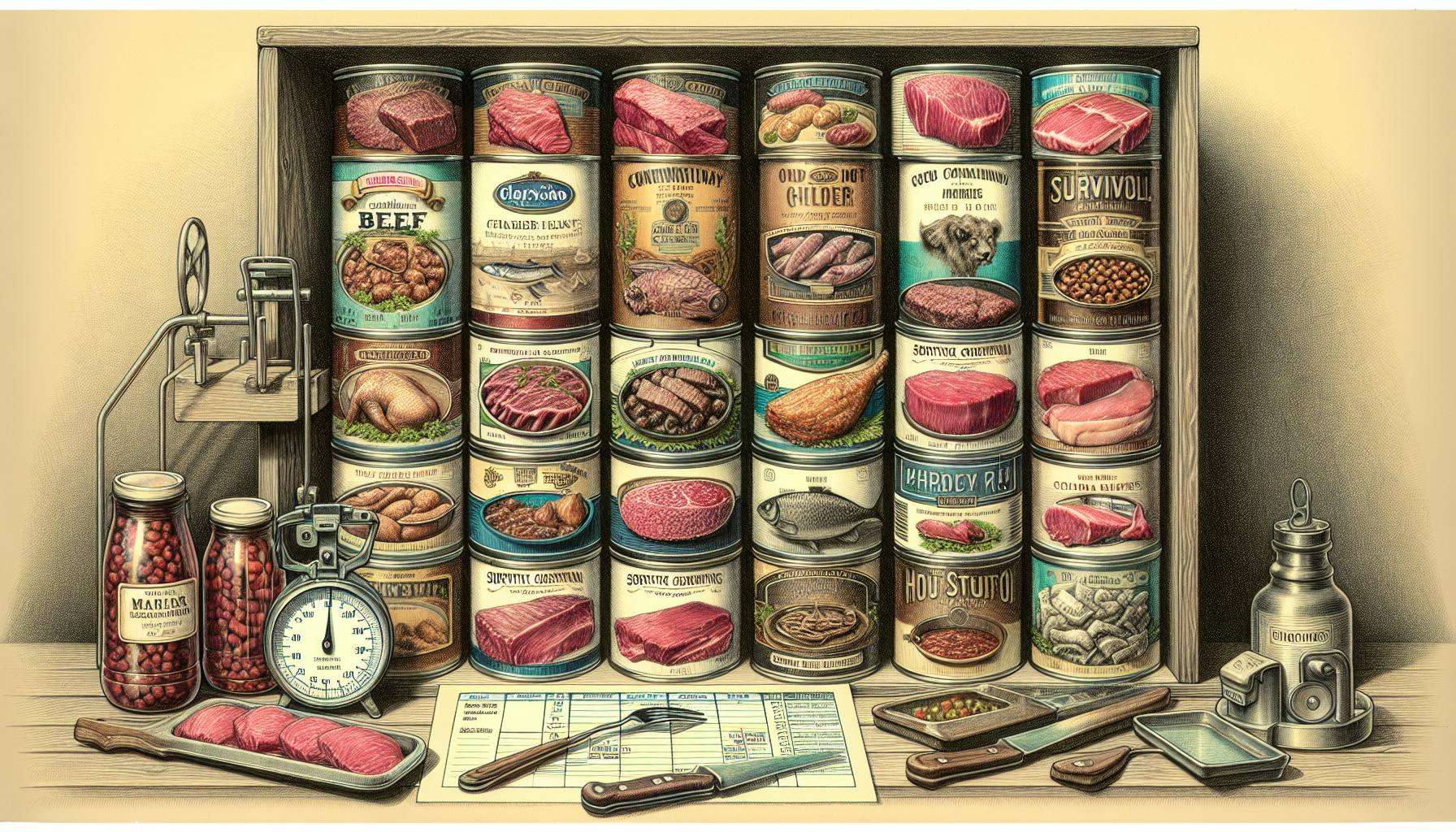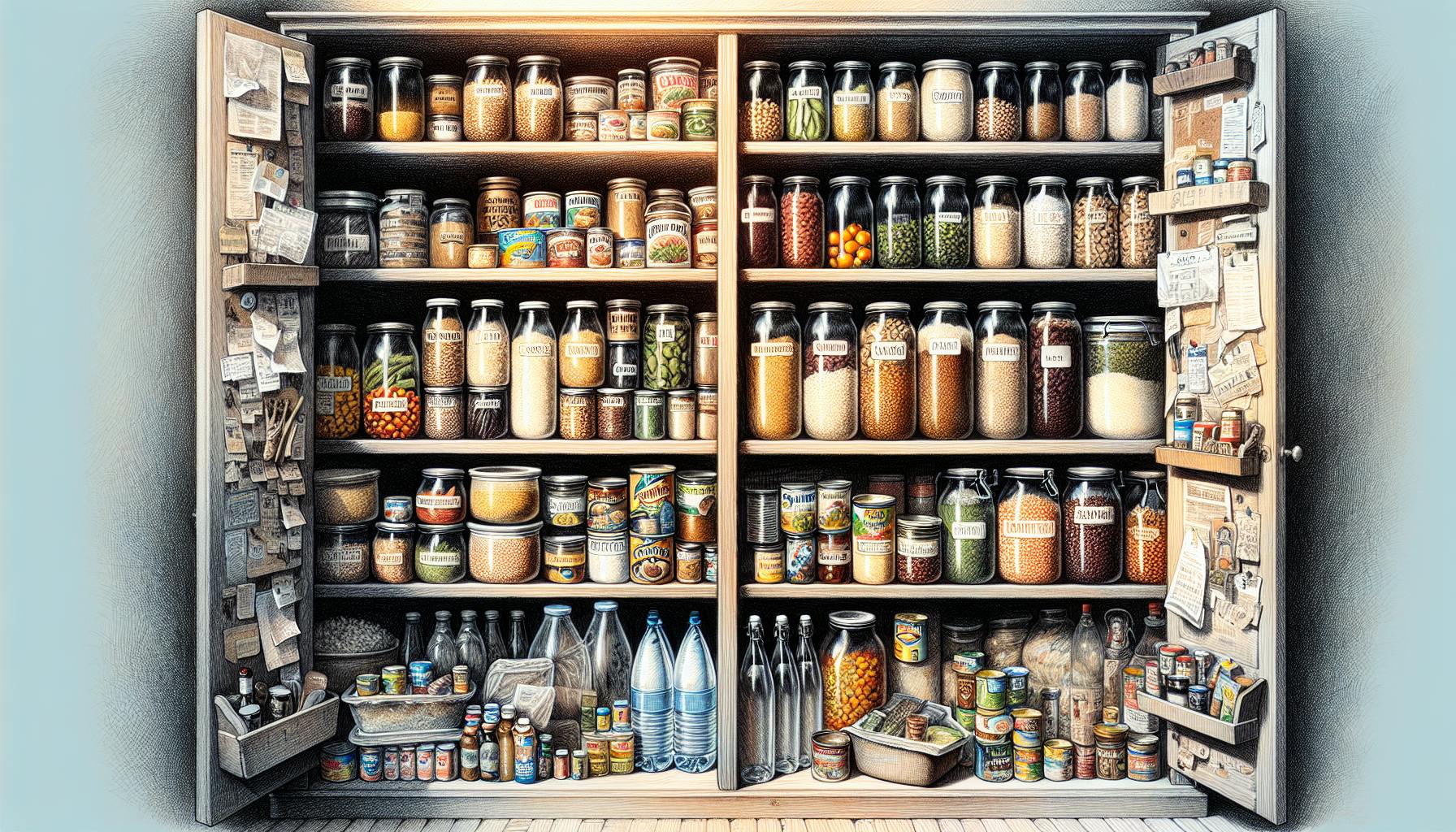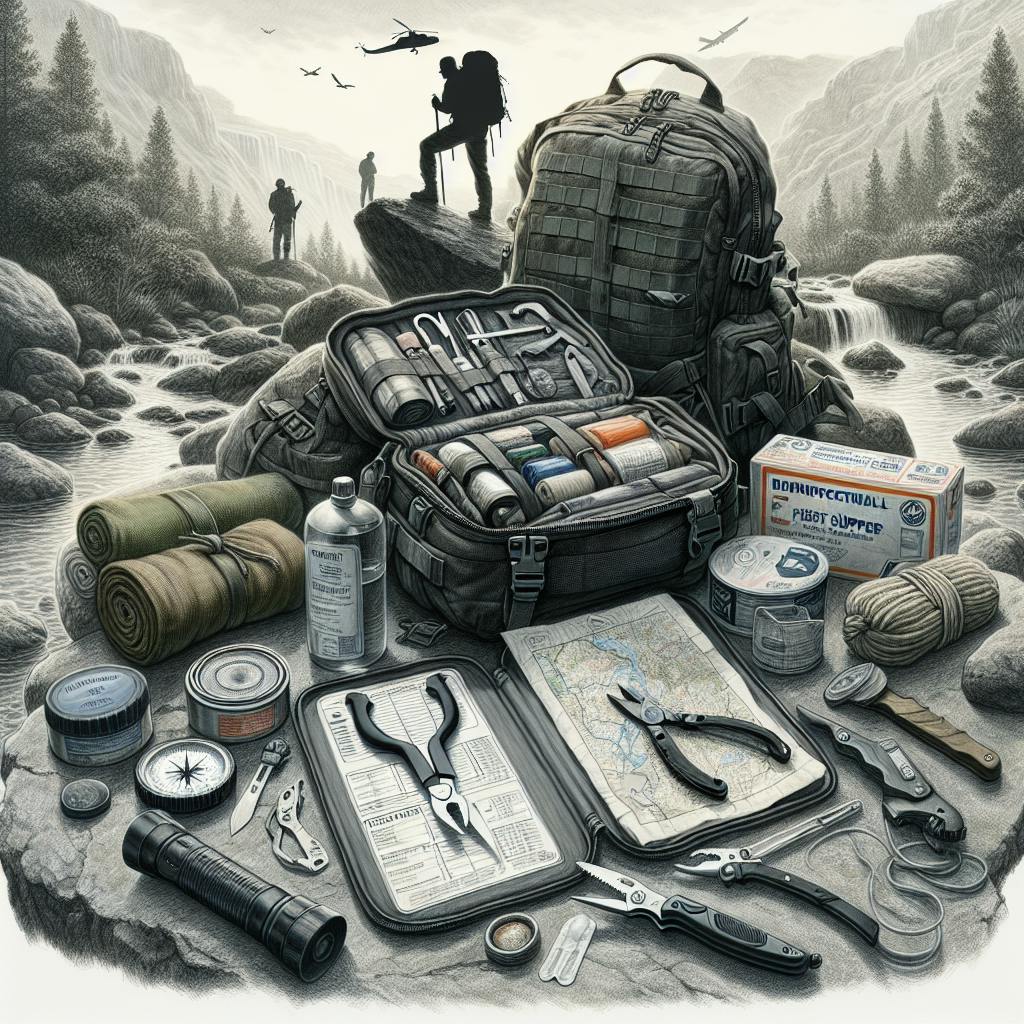Introduction to Creating an SHTF Shopping List
When preparing for potential disasters or disruptions, having a well-stocked shtf-grocery-list-essentials-survive-any-crisis/">SHTF shopping list can provide invaluable peace of mind. SHTF or 'Sh*t Hits The Fan' scenarios involve any emergency situation that disrupts normal life, whether from natural disasters like hurricanes, floods or earthquakes, economic collapse, pandemics, or civil unrest resulting in instability and supply chain disruptions. Having supplies like food, water, first aid, tools, and other critical items allows you to survive these disruptive events more safely and securely. You'll be able to fulfill basic needs even if the power grid fails, grocery stores close, or you must shelter in place or bug out due to unsafe conditions.
This comprehensive shopping list covers all the essentials you'll need to fulfill basic needs for your family if utilities and infrastructure are disrupted. Being prepared with at least 2-4 weeks of supplies means you can act quickly and confidently to protect and provide for loved ones, no matter the situation. The list emphasizes stocking up on items that ensure safety, health, sanitation, communication, and self-defense. With your critical supplies in place, you'll have the reassurance of knowing your household can safely endure an emergency situation.
Food and Water
Having sufficient food and water will be an immediate concern in any SHTF scenario. Stock up on enough non-perishable foods and water to cover at least 2-4 weeks for each person. A family of four would need supplies for 4 people x 4 weeks = 16 weeks of meals.
- Canned foods like tuna, chicken, beans, vegetables, and fruits are nutritious and last for years unopened. Prioritize proteins, fruits and veggies. Have at least 20-30 cans per person.
- Dried foods like granola bars, nuts, jerky and trail mix provide extra nutrients. Stock a variety.
- A water filtration system like a gravity filter or LifeStraw allows you to drink from untreated sources. Have backup options like water purification tablets.
- Have at least 1-2 gallons of water per person per day. 5-10 gallon containers are easy to store and transport.
- Powdered drink mixes like Tang or Crystal Light flavor and supplement water.
First Aid
Medical issues are likely to arise, so be equipped to treat injuries and ongoing health needs.
- A full first aid kit for wound care, sprains, headaches, etc. Stock extra gauze, bandages, sutures, saline, antibiotics and pain relievers.
- Medications - both over-the-counter and any essential prescriptions. Keep copies of prescriptions in a waterproof bag.
- Supplements like vitamins, electrolyte mixes for health upkeep.
- Medical records - copies of prescriptions, insurance cards, ID, etc. in waterproof bags.
- Tourniquet and coagulant for serious wounds.
Essential Gear and Tools
Reliable gear and multi-use tools are invaluable for handling diverse challenges and tasks on your own if infrastructure fails.
- Light sources like LED flashlights and headlamps provide critical illumination. Use lithium batteries and have spares.
- Radios - hand crank or solar-powered AM/FM/NOAA radio to receive emergency broadcasts.
- Multi-tools like WeLovePrepping's 72-hour backpack kits have essential survival tools conveniently packed.
- Maps and navigation aids like compass, GPS help you travel and orient yourself if digital GPS fails.
- Camp stoves, pots and pans allow you to cook food and boil water off-the-grid. A Dutch oven pot can cook over a fire.
Lighting
Proper lighting is extremely important during power outages or disasters when living without electricity.
- LED flashlights and headlamps offer hands-free, long-lasting light. Use lithium batteries and store spares properly.
- Candles and propane lanterns can provide secondary lighting indoors.
- Chemical glow sticks will work when electric options run out. Waterproof models won't be ruined if wet.
Cooking
Alternative off-grid cooking methods allow you to safely utilize your stockpiled food when utilities are disrupted.
- Camping stoves like propane models allow cooking without electricity. Store propane tanks safely.
- Cast iron cookware can be used directly over a fire, coals or with a camp stove.
- Heavy-duty aluminum foil wraps food for cooking/storage.
- Knife sharpener, can opener and utensils help prepare foods.
- Know how to make natural soaps from fats/ash if supplies run low.
Sanitation and Hygiene
Maintaining cleanliness and sanitation is critical for health when living without infrastructure.
- Stock up on toilet paper, paper towels, hygiene products for at least 1 month.
- Soap, toothpaste, detergent and bleach allow you to wash up and sanitize.
- Disinfectants like bleach can clean surfaces and purify water if boiled.
- Be prepared to dig catholes away from water sources to contain waste. Burn trash if possible.
Waste and Garbage
Properly disposing of waste helps prevent illness from contamination.
- Line trash bins with heavy-duty bags and safely contain refuse until you can burn.
- Use lye or bleach to help break down latrine contents. Dig catholes 6-12 inches deep.
- Shovel, rake and locator tools make digging emergency latrines easier.
Cleaning and Disinfecting
Regular cleaning and disinfecting is key for health when sheltering in place, especially in close quarters.
- Stock bar soap, shampoo, toothpaste and other cleansers for at least 1 month.
- Disinfectants like bleach sanitize surfaces and living areas. Make a 1:10 bleach-water solution.
- Scrub brushes, rags, mops and buckets aid with washing needs.
- Know how to make natural soaps from fats/ash if supplies run low.
Protection and Self-Defense
If lawlessness arises, protect yourself from harm with appropriate tools. Consider taking tactical defense courses to train.
- Pepper spray and stun guns offer non-lethal self-defense options.
- Firearms and ammunition - obtain legally and train thoroughly if you choose. Store safely.
- Two-way radios allow communication with your group.
- Alarms and sensors can help secure property and alert you to intruders.
Perimeter Security
Control access to your home or bug out location. Create layers of security if possible.
- Motion-sensing lights deter potential trespassers.
- Fences, barriers and window bars limit entry points. Plant thorny bushes as natural barriers.
- Trail cameras can provide remote monitoring of the perimeter. Position them discreetly.
Close-Quarters Defense
If an intruder breaches your perimeter, defend yourself as appropriate.
- Pepper spray stops threats at close range in a non-lethal way.
- Knives serve as both utility tool and last line of defense.
- A dog can warn of and fend off intruders in some cases.
- Reinforced doors and advanced locks bolster interior security. Install solid core doors if possible.
Additional Important Preparations
-
Have at least 2 weeks of cash in small bills in case electronic payments fail. Also stock barter items like liquor, cigarettes or precious metals.
-
Make customized bug out bags for each family member containing food, water, first aid, tools, clothes and other essentials in case you must evacuate quickly.
-
Draft an emergency action plan detailing your responses to likely disaster scenarios like evacuation procedures, communication protocols and contingency plans.
-
Take regular inventory of your supplies and replace anything expired or degraded. Store properly in a cool, dry place to maintain freshness. Use sealed containers to protect from pests.
Final Thoughts on Your SHTF Shopping List
Creating a well-rounded SHTF shopping list and stockpile arms you with the fundamental supplies to safely endure various disaster scenarios. Cover all the critical categories outlined here, customizing your list to meet your family's unique needs. Take inventory regularly and rotate stock to ensure nothing expires or breaks down over time. Use this comprehensive guide to start preparing today and gain confidence in your ability to provide for and protect loved ones, no matter what happens. The peace of mind from proper disaster preparedness is truly priceless.


